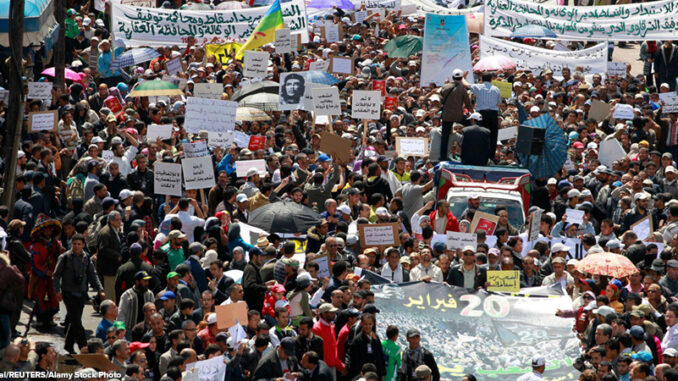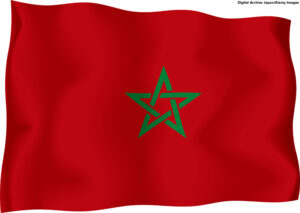
The World Cup international soccer tournament grabs the attention of the whole world and focuses on whichever nation is hosting the event. But what if the people who live in that host country aren’t happy about the expensive investment needed to host? That’s the situation happening in Morocco, a North African nation that will be hosting the 2030 FIFA World Cup. Anger over how Morocco’s government is spending its money has led to a series of ongoing protests known collectively as the “Gen Z Protests.”
What’s Happening?
Not only is Morocco hosting the World Cup five years from now, but it’s also hosting the Africa Cup of Nations later this year. In preparation, the country has built at least three new stadiums and is renovating or expanding at least half a dozen more. The people of Morocco are not excited about this investment. In fact, starting at the end of September 2025, Morocco saw one of its largest anti-government protests in years. The protests have taken place in at least eleven cities, and are spearheaded primarily by young people, who make up Morocco’s largest demographic group.
Why Are They Protesting?

In 2023, Morocco experienced a deadly earthquake that led to widespread devastation and homelessness. Many in these areas are still suffering. At the same time, in the country as a whole, medical care is inadequate. According to the World Health Organization, a country should have 25 medical professionals for every 10,000 inhabitants. In Morocco, there are only 7.7 per 10,000, and even fewer than that in some regions. The protests centered around peoples’ anger that the government is spending money on stadiums instead of on health and education resources. Unemployment is also an important issue. At the moment, Morocco’s unemployment rate is 12.8 percent, and as high as 35.8 percent for young people.
The Gen Z Protests
Collectively, the protests have been called the “Gen Z protests.” Though the protests have no official leader, two groups–“GenZ 212” and “Morocco Youth Voices”–have spearheaded the protests, spreading the word on social media. Though the groups called for a peaceful protest, police, some in plainclothes and some in riot gear, have arrested protestors. More than 120 people have been arrested altogether, leading many human rights experts to voice concern about the restriction of citizens’ right to freedom of expression. Three protestors have also been killed in clashes with security.
Looking Forward
In the wake of the protests, Morocco’s prime minister, Aziz Akhannouch, insisted that access to medical care is improving and that any ongoing problems with health services are being resolved. The Moroccan Health Ministry also fired several hospital directors and health officials. The protestors hope to persuade King Mohammed VI to fire the prime minister. King Mohammed has called for speeding up reforms to create more jobs for young people and improve health and education services. He has also advocated more attention to rural, often-neglected regions of the country.
